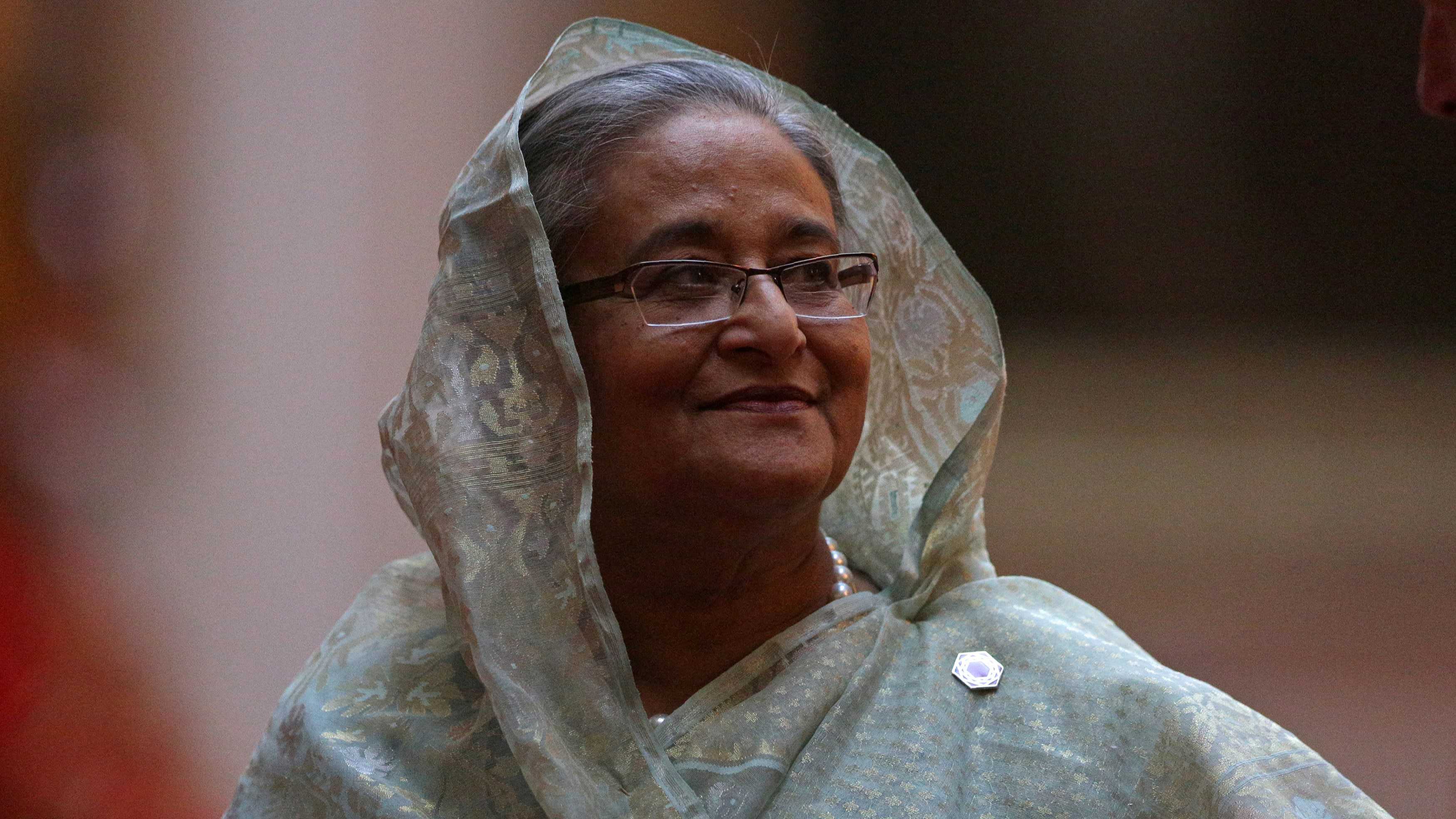Bangladesh confounds the naysayers for all your right reasons

Image: Collected
William Pesek can be an award-winning Tokyo-based journalist and writer of "Japanization: What the World Can Study from Japan's Lost Decades."
Among growing nations having "very good" COVID-19 crises, Bangladesh could be the most surprising.
Back in, say, May, the South Asian monetary backwater was the subject of gloomy prognostications. Its densely populated places, rudimentary healthcare system, and authorities considered unready for prime-time had been seen as a recipe for disaster.
Not really much. This nation of 165 million persons has recorded about 6,300 coronavirus deaths, 1,000 less than my hometown of Queens, NY. The Bangladesh overall economy is set to develop 4%-plus this year, and in ways which have heads exploding in neighboring India.
The previous month, the International Monetary Fund ranked Bangladesh ahead of India in per capita income. As the juxtaposition further shamed Narendra Modi's stewardship in New Delhi, it reminded global investors just how much Prime Minister Sheikh Hasina has got best suited in Dhaka these last 11 years. And the way the country Henry Kissinger famously dismissed as a "basket circumstance," is also having a good U.S.-China trade war.
Since 2017, Donald Trump's tariffs typically benefited from Vietnam. Its 97 million-plus human population, locale, and reasonably equivalent governing dynamic made Vietnam a clear hedge against Washington vs. Beijing fallout -- a mini-China if you will.
Quietly, though, Hasina's federal government positioned Bangladesh's garments-sector-oriented, lower-wage economy just as another haven for multinational businesses looking to diversify from China. Search no further than Fast Retailing, whose Uniqlo manufacturer is an ever-growing employer in Hasina's nation.
Yet the truly hard portion is merely beginning: harnessing recent accomplishments to make sure Bangladesh can woo even more business it's the way.
The shift in South Asia's monetary pecking order presents an uncommon window of opportunity. If Hasina's federal government can continue to improve public indicators -- including poverty costs -- and function harder to modernize economic institutions, the pivot to Bangladesh will gain momentum and raise per capita money far beyond today's roughly $1,900.
Yet it is a major if as COVID-19 second and third waves decimate economies from the U.S. to France to India. Though China keeps growing, perhaps just as much as 2% this year, its import desires are extra in the semiconductor orbit than fast fashion products.
Here are four ways Dhaka may accelerate the transition to a middle-income position and woo extra companies like Uniqlo it's way.
One, raise its ease-of-doing-business rating. The reason why CEOs of multinationals appreciate Vietnam may be the limited reddish tape together with regulators who recognize that there are other options. That clarifies why Vietnam ranks 70th on the World Bank business environment tables and Bangladesh is definitely a distant 168th. Trailing Cameroon and Myanmar will not win Dhaka the degrees of foreign direct expenditure needed to acquire per capita income nearer to $10,000.
Along with the have to "diversify the economy," says Ahsan Mansur, chairperson of Bangladesh's ubiquitous Brac Bank, "we desire a lot of effort to boost on the doing business indicator and about infrastructure development." Each one of these problems is intricately connected, of course. The main element is raising transparency, curbing graft, and raising efficiency.
Two, accelerate financial reform. Though Hasina got plenty right on the development front side, her workforce made an unfortunate oversight earlier this year by capping bank rates of interest at 9%. This experiment, borrowed from Kenya, was meant to keep high borrowing costs from slowing expansion. It backfired, warping the prices of risk in a nation already suffering from bad loans.
By June, nonperforming loans had increased to a worrisome 9.2% of total loans. The glad tidings are that Hasina's group is accelerating the development of a corporate bond market. The desire is to reduce companies' reliance on lender financing, a significant step as Dhaka moves upmarket production-wise. Yet more urgency is necessary if Bangladesh can be to catch Vietnam.
Three, commit big in people capital. A big feather in Muslim-majority Bangladesh's cap is normally how it largely avoided the tribal and sectarian squabbles that contain dogged Pakistan and significantly India. This is a gender-equality exemplar, ranking 71 rungs above Japan on the globe Economic Forum's tables, and 37 before Vietnam and 62 before India.
Yet to attract even more of the jobs fleeing China and avoiding India, Dhaka must spend exponentially even more on education, training, and increasing productivity. An integral reason Vietnam possesses emerged as Southeast Asia's big winner in the COVID-19 period is that it provides followed the path of previously Asian tigers and strengthened labor pools. Bangladesh can be third, East Asian model more dutifully than India. Larger investments in individual capital would turbocharge Dhaka's development boom.
Four, digitalize the economy. Back in February, prior to the coronavirus transformed everything, I spent an evening with Kamal Quadir, co-founder of mobile banking sensation bKash utilized by nearly 50 million persons. Its financial supporters are the Bill & Melinda Gates Base, the Community Bank's International Finance Company, and Jack Ma's Ant Group.
Impressive as I determined Quadir and bKash's sprawling downtown Dhaka campus, that is but one example of the good that will come from Hasina's team digitalizing of a nation on the road. It is a method of pulling practically 50% of the adult population that's unbanked into the economic climate. And reminding Delhi that India isn't Southeast Asia's simply superpower.
Source: https://asia.nikkei.com
Tags :
Previous Story
- Pharma export to Asean market more likely to...
- How Bangladesh can benefit from China’s economic recovery
- What the brand new trade bloc opportunity for...
- Bangladesh seeks better global support for migrant workers
- Denim Expert Small Earns Accolade from the Universe...
- Finland companies thinking about bilateral trade with Bangladesh
- App Store Fee Cut Attracts Criticism From Key...
- China, Saudi, Turkey like to create international standard...